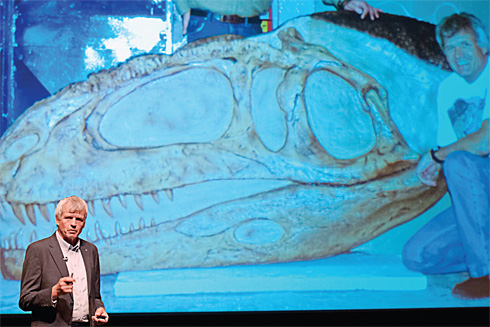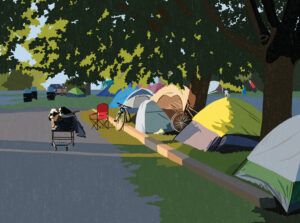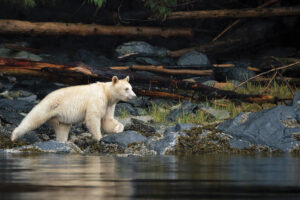
People & Culture
Kahkiihtwaam ee-pee-kiiweehtataahk: Bringing it back home again
The story of how a critically endangered Indigenous language can be saved
- 6310 words
- 26 minutes
This article is over 5 years old and may contain outdated information.
People & Culture

Who would win in a fight — a Tyrannosaurus rex or a Spinosaurus?
This crucial question, posed by an eager young dinosaur fan, was just one of the many queries world-renowned paleontologist Philip Currie (above) fielded at The Royal Canadian Geographical Society (RCGS) Speaker Series event.
Currie’s May 2 lecture, “Dino Gangs,” entranced an audience gathered at the Canadian Museum of Civilization in Gatineau, Que., with stories of dinosaur fossil hunting in Canada and the clues that led to his groundbreaking theory: carnivorous dinosaurs, such as the T. rex, hunted in packs and were much more intelligent than previously thought.
After the lecture and an entertaining question-and-answer session (the T. rex beats the Spinosaurus hands down), Currie signed copies of Dino Gangs, a book about his theory that he co-authored with Josh Young.
“Dinosaur science has the unique ability to captivate us at any age,” says RCGS executive director André Préfontaine. “That’s why we were especially delighted that Dr. Currie, a Fellow of the Society, agreed to share his fascinating research with us. His compelling — and at times chilling — presentation definitely captured the imagination of everyone in the room.”
Currie will return to the same venue on Nov. 7 for the RCGS’s Annual College of Fellows Dinner, when actors Dan Aykroyd and Donna Dixon Aykroyd will present him with the RCGS Gold Medal.
Are you passionate about Canadian geography?
You can support Canadian Geographic in 3 ways:

People & Culture
The story of how a critically endangered Indigenous language can be saved

People & Culture
For unhoused residents and those who help them, the pandemic was another wave in a rising tide of challenges

Wildlife
How ‘maas ol, the spirit bear, connects us to the last glacial maximum of the Pacific Northwest

Places
In Banff National Park, Alberta, as in protected areas across the country, managers find it difficult to balance the desire of people to experience wilderness with an imperative to conserve it